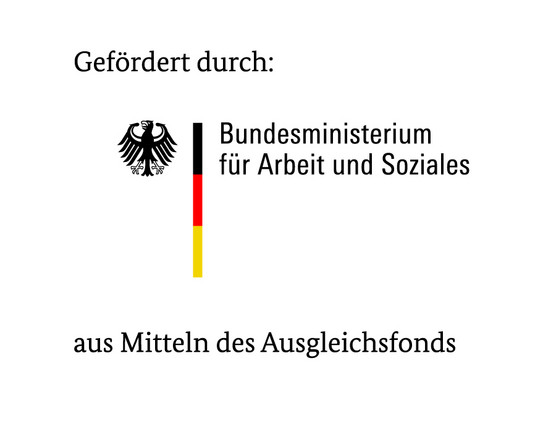Working - the way I want to!
Research area Innovation and education in the digital society | Dr. habil. Bastian Pelka | Daniel Krüger | Caroline Mosch | Lisa Preissner | Ann Christin Schulz | Felix Fankhänel
Empowerment for people with disabilities from the determination of needs to equal, self-determined participation in working life.

BMAS, compensation fund for supraregional projects for the participation of severely disabled people in working life
The project "Working - the way I want to" is funded by the BMAS with around 6 million euros and aims to improve the transition of employees of a workshop for people with disabilities into the general labor market. To this end, the self-determination of people with disabilities is to be increased by means of suitable tools. An AI-supported app, the pedagogical approach of the Reallabor as well as an innovation-scientific analysis of the transition process and an organizational-sociological treatment of the transitions are used. The project duration of five years makes it possible to first design a technical tool (an AI-supported app) that will enable people with severe disabilities to independently determine their needs. The need should be able to be applied for by the actors at the cost unit and thus represent an extended support. Another focus will be the identification of participation problems and the occurring obstacles. These should be reduced within the project by changing the workplaces as well as possible technical solutions. In order to be able to test this, a real laboratory close to the population is to be created in the city center of Essen. The testing of the researched methods and possibilities shall take place with different employers from the metropolitan region Ruhr. The focus will be on identifying new jobs with the help of artificial intelligence.
Supporting association of the Franz-Sales-Haus, Fraunhofer application center SYMILA, Münster University of Applied Sciences/School of Design
- Enabling empowerment - supporting people with disabilities - making decisions about work processes - communicating competencies - offering support options and being able to use them in a targeted way themselves
The SFS takes over a large part of the scientific monitoring of the project as well as the analysis of the transition process. The entire course of the project will be evaluated, using both quantitative and qualitative methods depending on the situation. The main focus is on the identification of needs and the involvement of the target groups. These can be potential employees with a severe disability as well as possible employers.




![[Translate to English:] [Translate to English:]](/storages/zentraler_bilderpool/_processed_/a/f/csm_Kontakt_b86e8d8ecc.png)
![[Translate to English:] [Translate to English:]](/storages/sfs-sowi/_processed_/6/c/csm_Glasfront_sfs_Header_eae6d325d3.jpg)